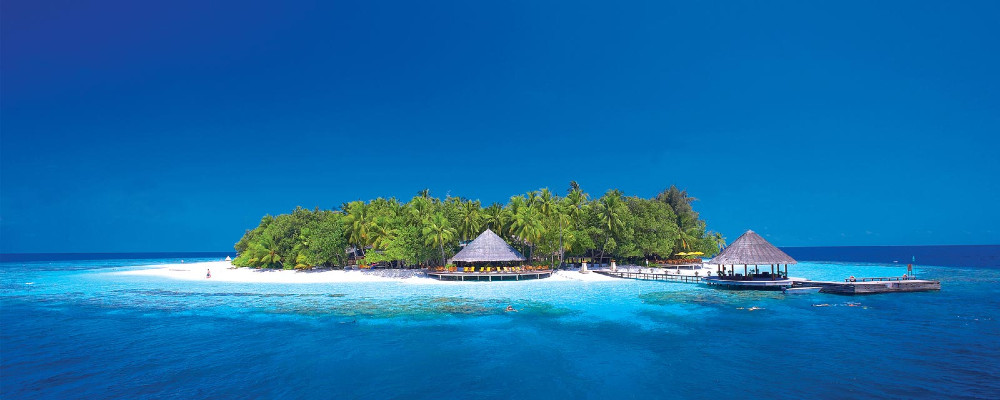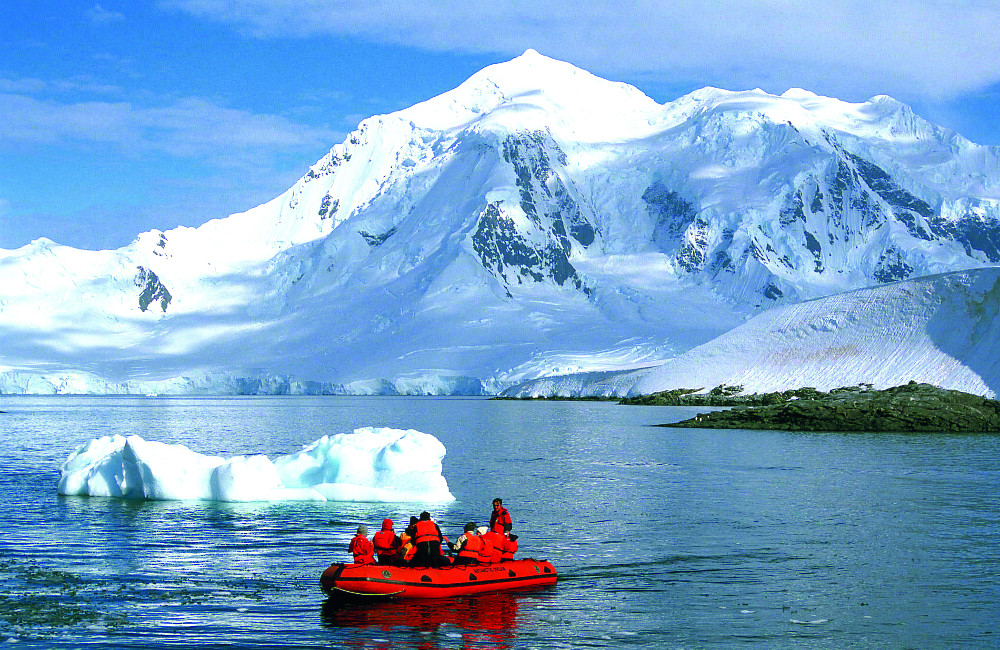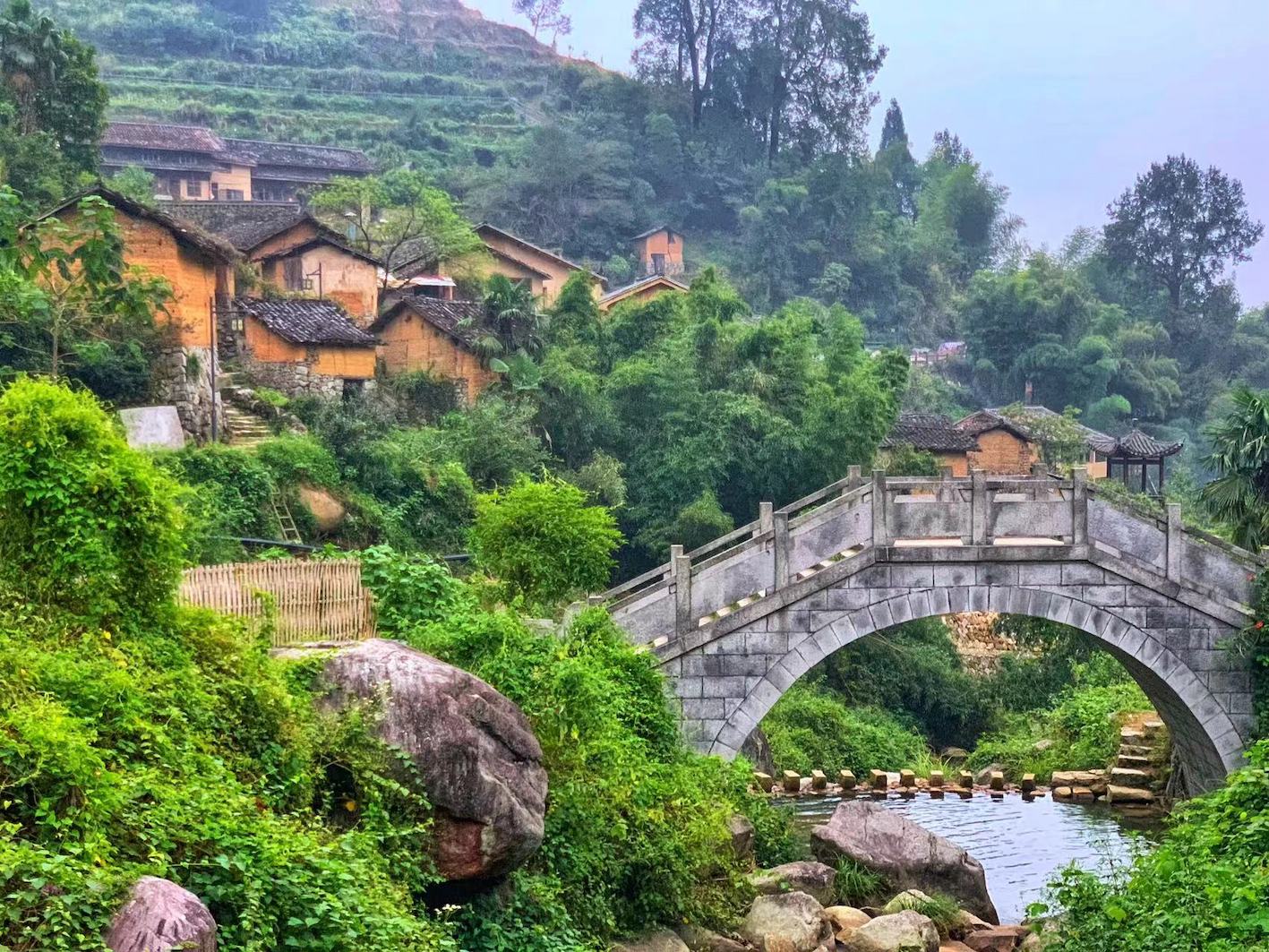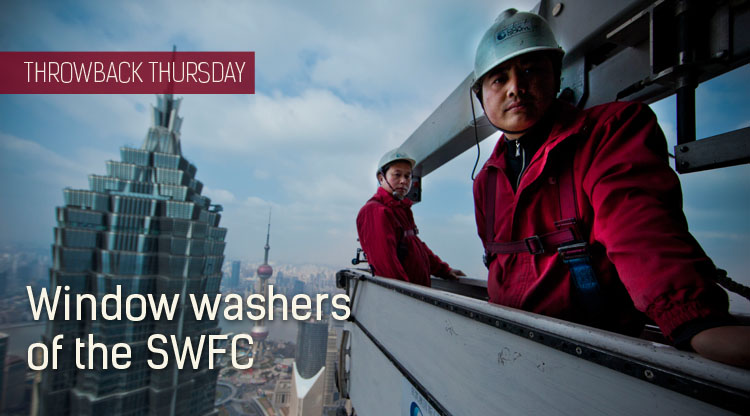Throwback Thursday is when we trawl through the That's archives for a work of dazzling genius written at some point in our past. We then republish it. On a Thursday.
By Marianna Cerini
When London-based travel company VeryFirstTo.com launched an outlandish new USD1.5 million holiday package in April 2012 – a two-year-long luxury trip to all 962 World Heritage sites on the planet – even they didn’t expect it to sell. That was until they received a call from an anonymous bidder in China, allegedly a student doing a PhD, looking to purchase the entire tour.
The Chinese national is now getting ready to spend the next two years traveling the globe, staying in the most luxurious hotels and flying business class while visiting more than 150 countries.

Chinese tourists want to rent out private islands in Oceania, cruise Antarctica and hire guides for customized safaris in Africa.
Although exceptionally over the top, this splurge is no rare exception. On the contrary, the unnamed buyer is just one of the many affluent Chinese taking the world’s travel industry by storm – flying high and with plenty of money to burn.
According to the World Tourism Organization, Chinese travelers from the Mainland are now the top source of tourism cash in the world, leapfrogging Germany and the US with a record USD102 billion spent on overseas trips in 2012, a 40 percent increase from USD73 billion in 2011.
By 2015, 100 million Chinese are expected to travel internationally, a benchmark originally forecast for 2020 – and a figure even more remarkable given that only three percent of Chinese currently hold a passports.
Among this army of vacationers filling the planet’s hotel beds and cash tills, a discerning elite of new economic emperors is reshaping the top end of the tourist market and branching out of shopping-tour-in-a-bus and short-stay stereotypes.

A discerning elite of new economic emperors is reshaping the top end of the tourist market and branching out of shopping-tour-in-a-bus and short-stay stereotypes.
“They are what I call ‘new Chinese tourists,’” says Pierre Gervois, President of the Shanghai Travelers’ Club, a members-only organization focused on helping and advising wealthy Chinese when planning a trip overseas. “People who are better educated, with more travel experience – most have been students abroad, so they know their way around and are more self-organized – they want something different.”
While you’re still going to see crowds of Chinese tourists hopping off buses and sweeping into luxury boutiques on the Champs- Elysées in Paris or playing black jack in Las Vegas casinos, the über-rich of China are aiming for a whole new level of luxury. And that doesn’t just mean emptying out Harrod’s or Saks Fifth Avenue. They want to rent out private islands in Oceania, cruise Antarctica and hire guides for customized safaris in Africa.
“What wealthy Chinese travelers demand is a bespoke service. They don’t want to be herded around in big groups. It’s all about small, personalized experiences, and doing things slightly differently from before,” says Alison Gilmore, Exhibition Director of International Luxury Travel Market (ITLM). The leading annual business-to-business event for the global luxury travel community recently held its seventh Asia edition in Shanghai.
"We have seen Chinese visitors skydiving, jetboating, staying in luxury lodges and five-star apartments and out driving in camper vans."
The trade hub is a showcase of upscale travel packages, high-end hospitality outlets and itineraries. This one saw the debut of the Orient Express’s new 50-passenger river vessel cruise in Myanmar, which will commence sailing this month, and the quintessentially British luxury brand Fortnum & Mason introducing its services for the first time in Asia.
“Participation in ITLM Asia has risen from last year, and so have the offers for jets, cruise liners, luxury hotels and tailor-made touches to make a trip thoroughly enticing for the ultra-wealthy,” Gilmore continues. Indeed, this year’s ITLM saw an 11 percent increase the number of buyers – a symptom of Asia’s appetite for luxury travel.
According to luxury publishing group Hurun Report – the group responsible for China’s annual rich list — China now has 600 US-dollar billionaires and 2.8 million millionaires. These ‘new elite’ identify travel as their top recreation and are happy to pay premium prices for unforgettable, one-of-a-kind experiences.
“We have seen Chinese visitors skydiving, jetboating, staying in luxury lodges and five-star apartments and out driving in camper vans,” said James Helmore, General Manager of Lake Wanaka Tourism in a recent interview with New Zealand newspaper Otago Daily Times. It seems like the new travelers might be ready to splurge in a less conspicuously materialistic way.
“Money is not an issue. It’s motivation,” says Gervois. “Particularly in terms of social distinction. Luxury travelers don’t want to be surrounded by other Chinese tourists anymore – actually, they never did, but they now have a choice and therefore look for activities that put them a cut above the rest.”

Demand for one-of-a-kind experiences, like cruising the South Pole, has risen tremendously among wealthy Chinese tourists.
They’re using travel as a form of soft power and status recognition then? “Hunting, for instance, is becoming a really popular among our members as a way to show off their means,” says Gervois. “It used to be golf, but now everybody plays golf, so it no longer feels exclusive.”
Well connected at home, this new demographic of travelers seems to need some guidance deciding what ‘in’ experiences are really worth their money and how to realize their dreams of grandeur and opulence abroad. “They want ‘it,’” says Gilmore, “but they don’t always know what ‘it’ is.”
Besides the Shanghai Travelers’ Club – which counts 3,500 members with many based in second and third-tier cities – Affinity China is another major travel consultancy that brings companies and Chinese tourists together for unique experiences, from a party with Oscar de la Renta and Diane von Furstenberg in the Empire State Building to dinner with Prince Albert in Monaco.
"Money is not an issue. It's motivation."
The ultra-exclusive Quintessentially club has also been putting down roots in cities across China since 2009, offering concierge services that extend to high-end travel. Travel agency ITravelLive, on the other hand, only focuses on trips to the South Pole. From exclusive hunting trips to private stays in century-old French castles, the demands of Chinese luxury travelers put celebrity requirements to shame.
“Ten years ago the idea of luxury travel didn’t exist in China,” explains Gervois. “It’s an extremely new and recent concept compared to other countries – which makes this a truly pioneering market.”
Recently, the Abercrombie & Kent China Office began selling a sixteen-day group tour of the South Pole for RMB160,000 per person. They sold out in a snap.
“Reservations for South Pole group tour scheduled at the end of 2013 were full at the beginning of this year,” A&K ‘s Wu Zhiyuan told the China Daily. The sky might soon no longer be the limit.
This article first appeared in the July 2013 issue of That's. To see more Throwback Thursday posts, click here.






















0 User Comments